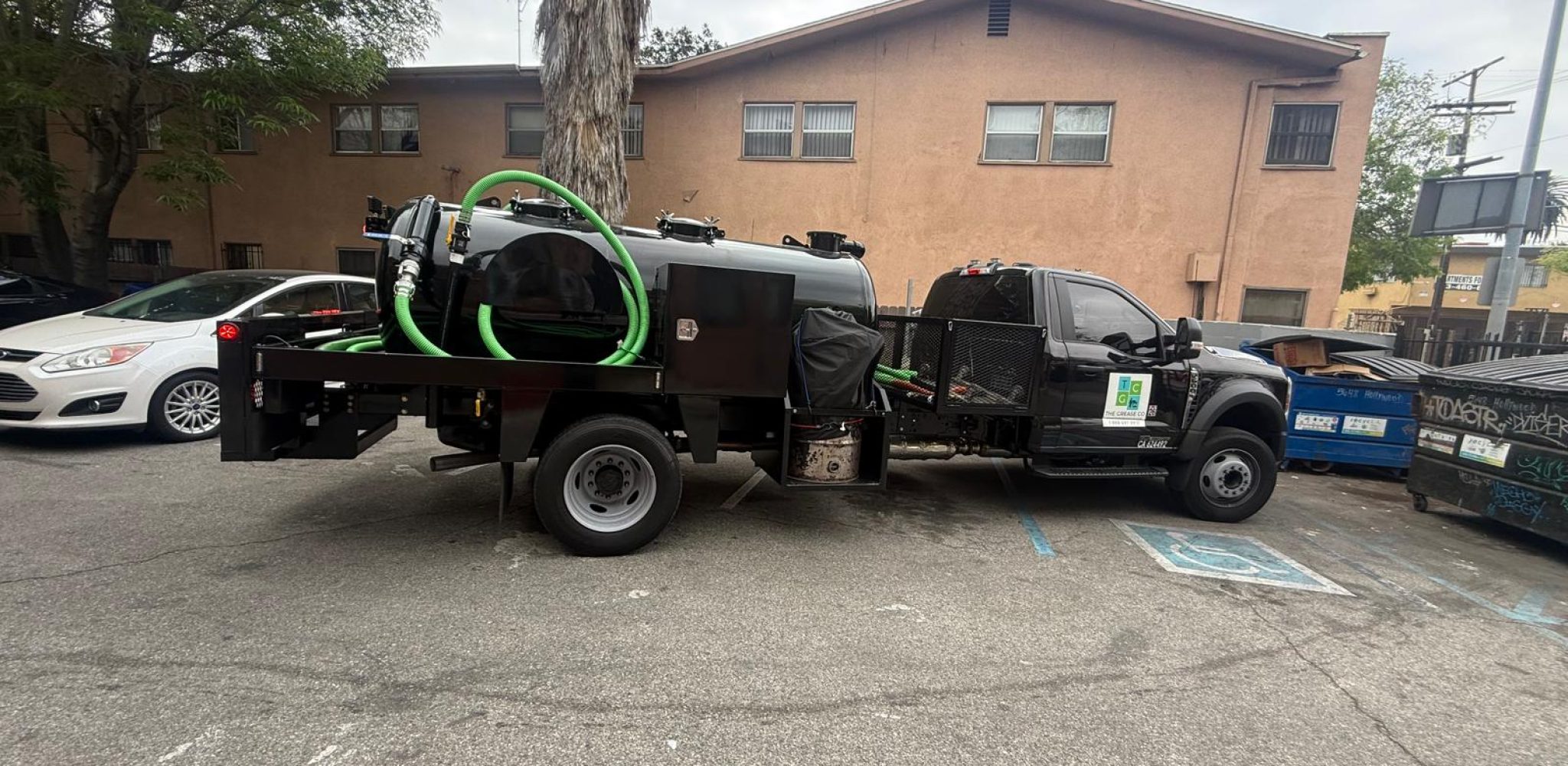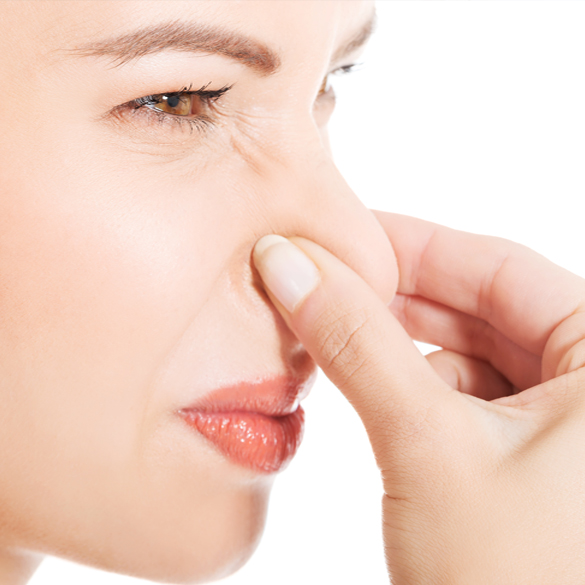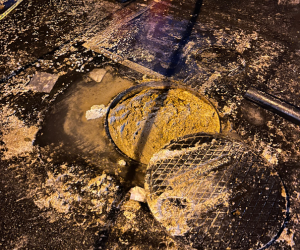Grease Trap & Interceptor Odor Removal
Home
>
Odor Control
Contact Us
Contact Us
Services We Provide
Do you Need Emergency Services?
We’re available for fast, reliable emergency service when you need it most. Whether it’s a leak, overflow, or urgent pickup, our team is ready to respond- just give us a call.

Get Rid of Bad Grease Trap and Interceptor Smell from your Commercial Kitchen
Odor can cause humiliation for the business driving customers away from dining in or ordering out. Having a foul plumbing odor coming into or from the restaurant can affect business negatively causing the business to lose customers. Therefore, if you are experiencing awful ghastly stench it may be to your best interest to resolve the problem immediately to protect the business good reputation.
Resolving an odor problem can be as simple as hydro jetting the pipes or as difficult as line tracing the complete plumbing system. The only challenge is locating where a particular odor is coming from, this is because of the differing pressures of air and water that is moving on the drains shifting direction. There are many factors that cause odors in the plumbing system such as; filthy pipelines, broken P traps, broken or filthy grease trap / interceptor, bad ventilation system, etc. Therefore, when detecting odor it is typical for us to practice a process of elimination.

Most Common Cause of Bad GI & GT Smell
Unpleasant odors in commercial kitchens or food establishments are often caused by neglected grease traps, broken plumbing components, or poor ventilation. These smells not only disrupt business but can signal underlying issues like sludge buildup, broken p-traps, or even pipe misalignment. Our team specializes in grease trap odor control and professional odor locating services to pinpoint and eliminate the source—fast and effectively.
- Unpumped or Dirty Grease Traps
- Broken or Dry P-Traps
- Heavy Sludge in Pipes
- Pipe Shifting or Damage
Why Grease Traps & Interceptors Have Bad Odor?
If you pass the kitchen wastewater through grease interceptor, the animal fats and vegetable oils rise to the surface in the trap hence trapped using a system of baffles. Once this grease and oils is captured it fills the trap from the top down releasing somehow clean water through the bottom side of the trap and directly to the sewer line. You can later clean the trap to remove the mat of grease. These vegetable oils and animal fats would otherwise make the water to have unpleasant smell but the Grease trap is quite efficient in eradicating such odors.
Importance of Grease Trap and Interceptor Odor Detection Service
Eliminate kitchen flies
Once the kitchen waste water is passed through the grease interceptor it minimizes the kitchen flies that could have otherwise been attracted by the bad odor.
Prevent ghastly unpleasant odor
You can continue with your kitchen activities without any worries of offending customers. By pin pointing the cause of the odors, we are able to put an end to the problem
Eliminate kitchen flies
Once the kitchen waste water is passed through the grease interceptor it minimizes the kitchen flies that could have otherwise been attracted by the bad odor.
Prevent ghastly unpleasant odor
You can continue with your kitchen activities without any worries of offending customers. By pin pointing the cause of the odors, we are able to put an end to the problem
Keeping your commercial kitchen free from all foul odors and your establishment in compliant with the city and health regulations our job. Our team of haulers are fully licensed by the CDFA to remove, haul and dispose grease trap waste content. Call us today at 888-696-9906 and get a free QUOTE.
FAQ about Restaurant Grease Trap Cleaning Services
What causes bad odors from a grease trap or plumbing system?
Odors typically result from built-up fats, oils, grease, and sludge that haven’t been properly pumped or cleaned. Broken p-traps, misaligned pipes, or poor vent placement can also allow gases to escape. Regular maintenance and inspections are essential to prevent smells and identify hidden issues.
How can I eliminate foul odors from my commercial kitchen?
Start with a professional grease trap cleaning and hydro jetting service to remove built-up sludge. Ensure all p-traps are functioning, vents are correctly placed, and no pipe damage exists. If odors persist, an expert smoke test can help trace hidden leaks or gas escapes in your plumbing system.
How often should I schedule odor control or inspection services?
Grease trap and plumbing odor inspections should be done at least every 3–6 months, depending on kitchen usage. High-volume restaurants may need more frequent service. Regular checkups help prevent odors, maintain compliance, and reduce costly emergency cleanups due to unnoticed buildup or plumbing faults.
Ready to Get Started?
Trust GMS (A proud partner of The Grease Company, LA) for all and any of your commercial plumbing need. No matter what the time is, we’re always here for you.
News & Articles | Knowledgebase for our Customers

What is Greas oil collection
Duis aute irure dolor in reprehenderit in voluptate velit esse cillum dolore eu fugiat nulla pariatur.

What is Greas oil collection
Duis aute irure dolor in reprehenderit in voluptate velit esse cillum dolore eu fugiat nulla pariatur.

What is Greas oil collection
Duis aute irure dolor in reprehenderit in voluptate velit esse cillum dolore eu fugiat nulla pariatur.

What is Greas oil collection
Duis aute irure dolor in reprehenderit in voluptate velit esse cillum dolore eu fugiat nulla pariatur.
